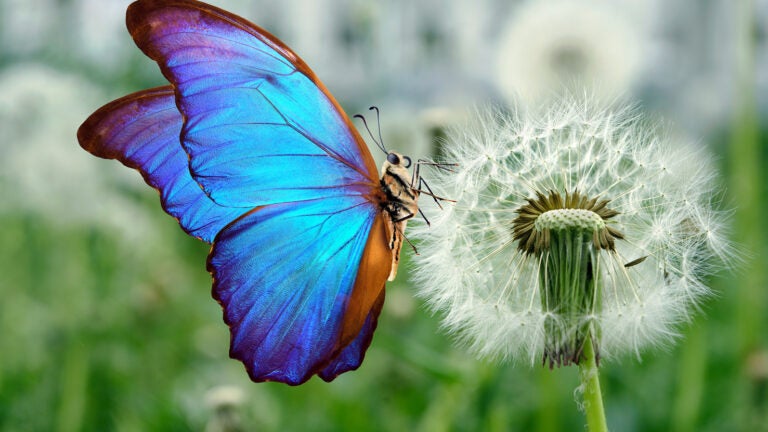
Bias for pretty butterflies may be skewing biodiversity data
Original story by Sanjana Gajbhiye
The human attraction to beauty may be working against scientists as they seek to gain an accurate picture of our planet’s biodiversity, according to a study of data in iNaturalist and eButterfly, online community science platforms where the public can report sightings of various species.
The study, co-authored by Wrigley Institute faculty affiliate Laura Melissa Guzman and supported in part by her 2022-2024 Wrigley Institute Faculty Innovation Award, compared species reports found in the two platforms. While eButterfly asks users to select butterflies they’ve seen from a comprehensive list of species that is pre-populated with photos, iNaturalist asks users to upload their own photos and does not provide a checklist. The iNaturalist configuration therefore puts more responsibility on users to find and select the butterflies they are going to report.
Researchers found that, compared to eButterfly users, iNaturalist users over-reported sightings of butterflies with attractive or distinctive markings, such as wing spots, stripes, or bright colors. This could mean that humans’ natural affinity for beauty is getting in the way of accurate species counts. iNaturalist users also under-reported sightings of butterflies that are difficult to photograph (e.g., because their typical flight patterns are erratic).
The findings have important implications for conservationists, who often rely on community-generated data to help determine priorities, and for researchers who study species distribution and population trends.
Read the full story on Earth.com >>
Read the full study in Frontiers in Ecology and the Environment >>